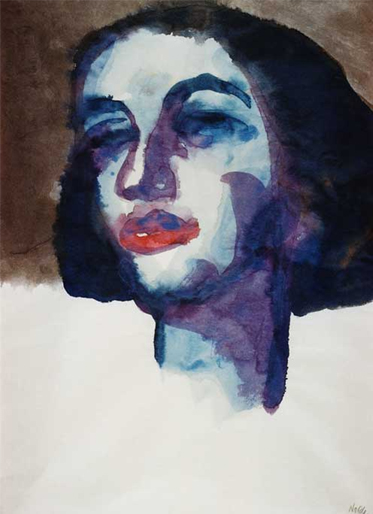GAUGUIN's Tahitian idylls, fantasies of return to an uncomplicated, purely sensual existence; Picasso's angular, glaring Demoiselles d'Avignon, their features modelled on African tribal masks; Dubuffet's rough-hewn attempts to recapture, as an adult, the disconcerting immediacy of children's art . . . The list could be almost infinitely extended. There is a level on which the history of modern art could be written as a series of efforts to get back in touch - with something primal, originative, that always manages to elude precise definition.
The attempts continue. Jeremy Lewison, in the catalogue for the Tate Gallery's current exhibition of Anish Kapoor's graphic work, suggests that ''Kapoor's drawings relate to primitive culture not only through archetypal forms but by the expression of primal fears and urges''. Lewis Biggs, in the catalogue for the Whitechapel Gallery's Ian McKeever retrospective, argues that McKeever's art ''reflects our beliefs about our own origins''.
Getting back to origins has always been a tricky feat to attempt, largely because quite what it is that is being got back to remains so ambiguous. There are other risks besides, some of which are demonstrated by the Whitechapel's other current exhibition: ''Emil Nolde: The Unpainted Pictures.''
''Instinct,'' proclaimed Nolde in the early years of this century, ''is 10 times stronger than knowledge.'' In his case, theory translated into the assiduously cultivated barbarism of Expressionist painting - the manic, cavorting dancers, their bodies rendered in a palette of aggressively primary colours and harsh, slashing brushstrokes, who inhabit some of Nolde's more famous earlier paintings. At first, these paeans to the primitive impulses of an imaginary ur-Volk seemed perfectly in tune with the Nazis' own militant, backward-looking nationalism. When Goebbels came to power under Adolf Hitler, he hung his office with Noldes and announced that ''Today we are all Expressionists''. Nolde signed...


